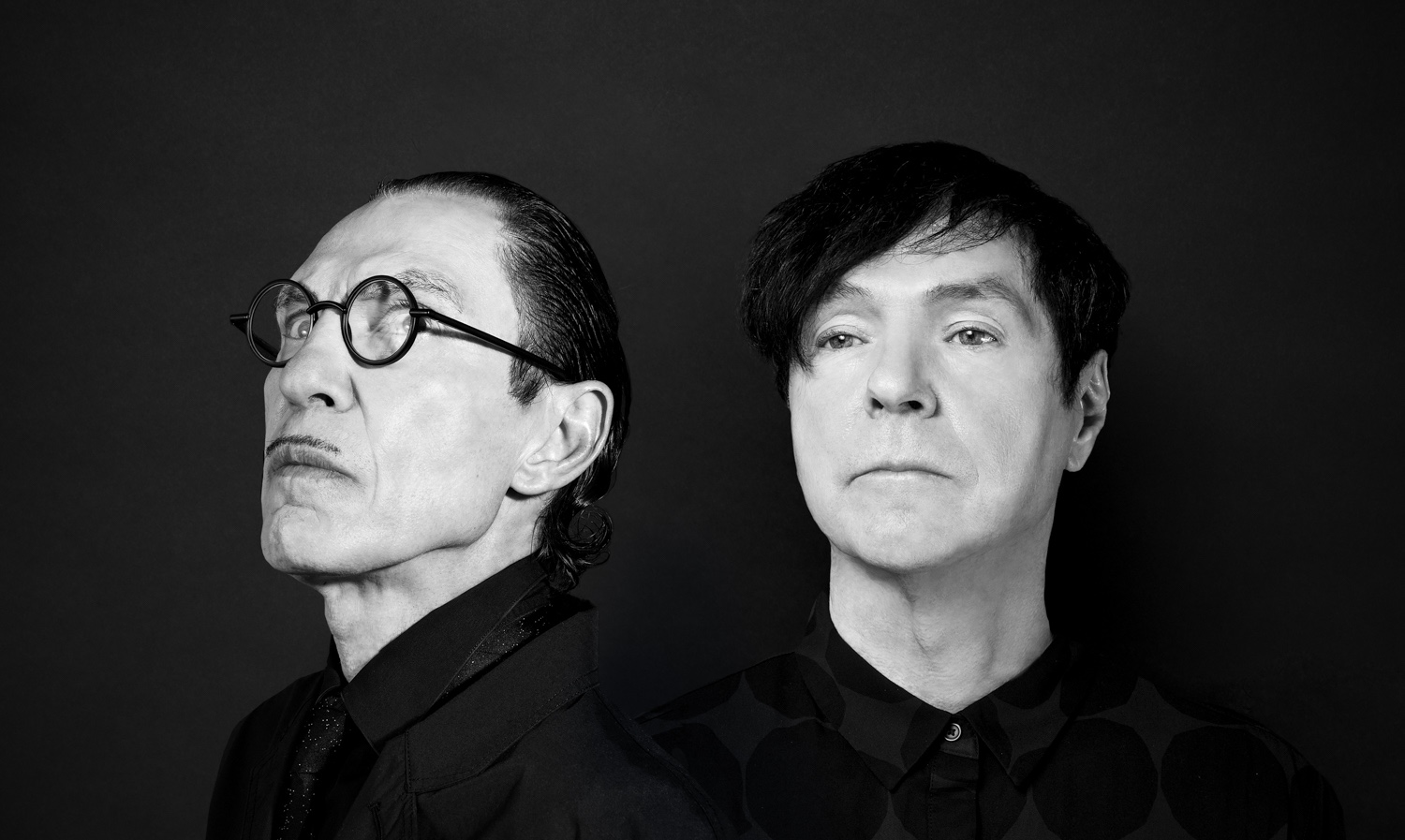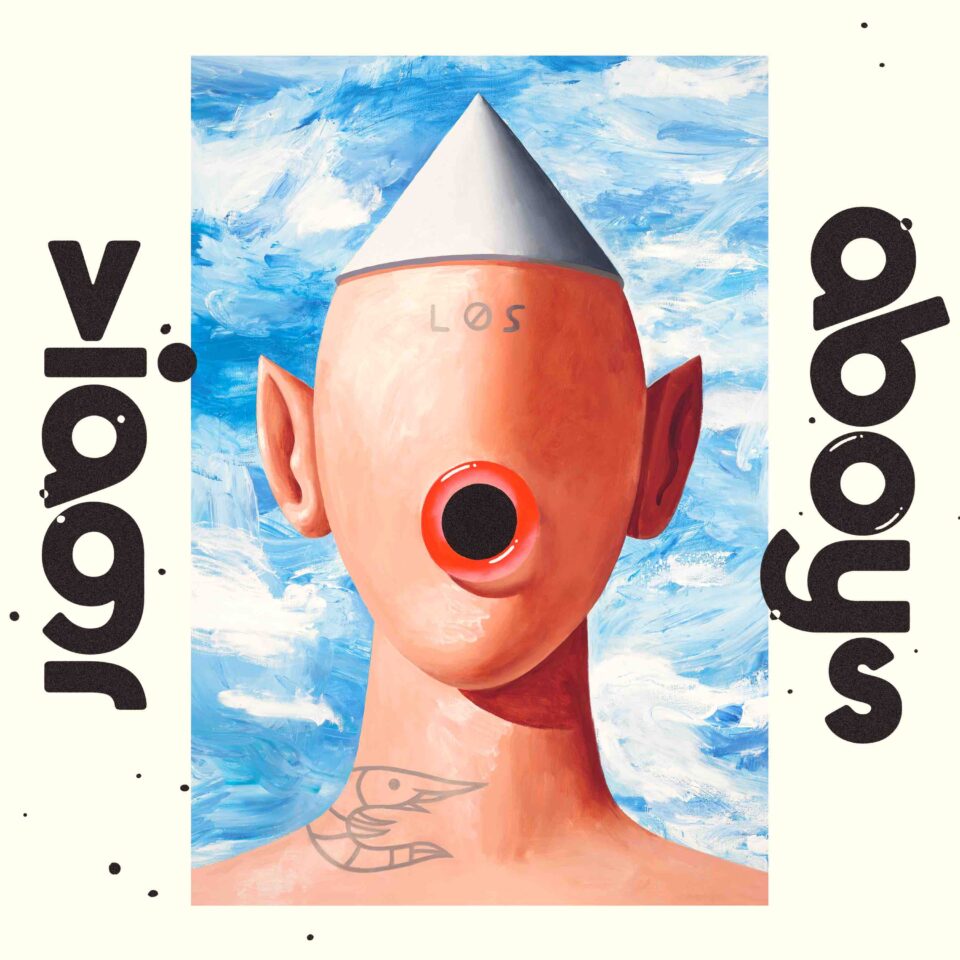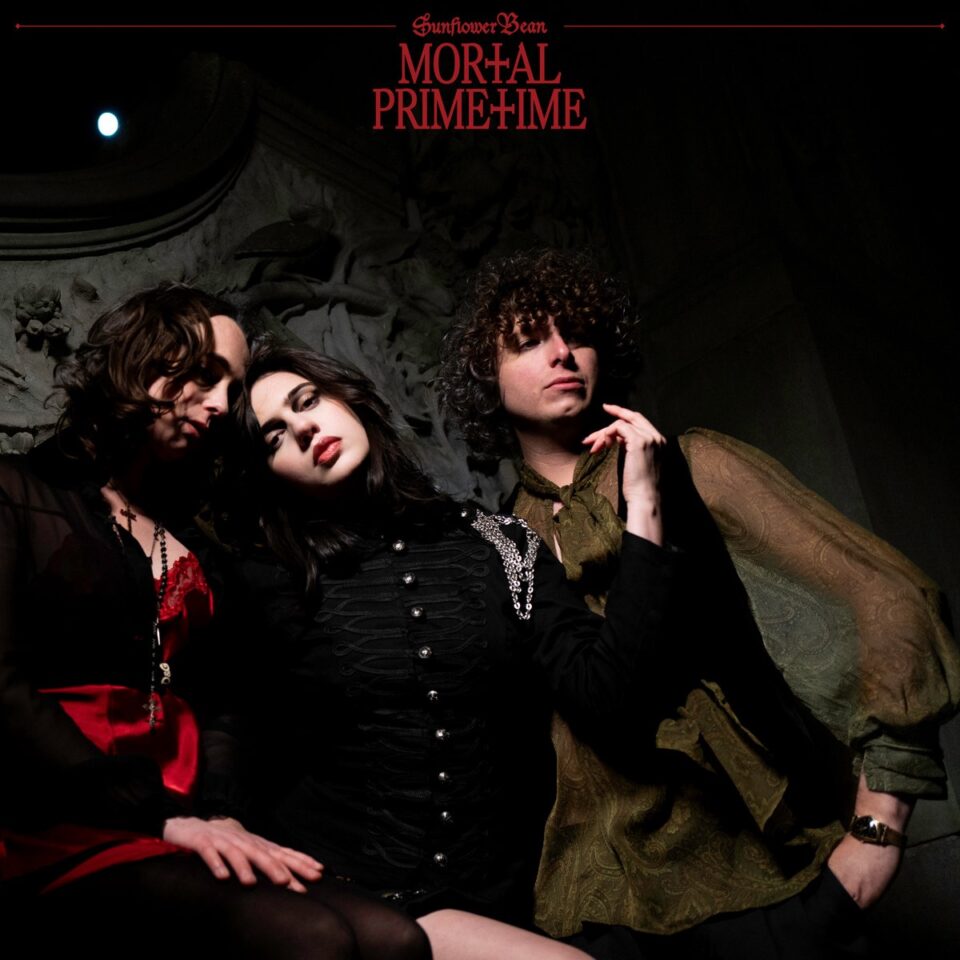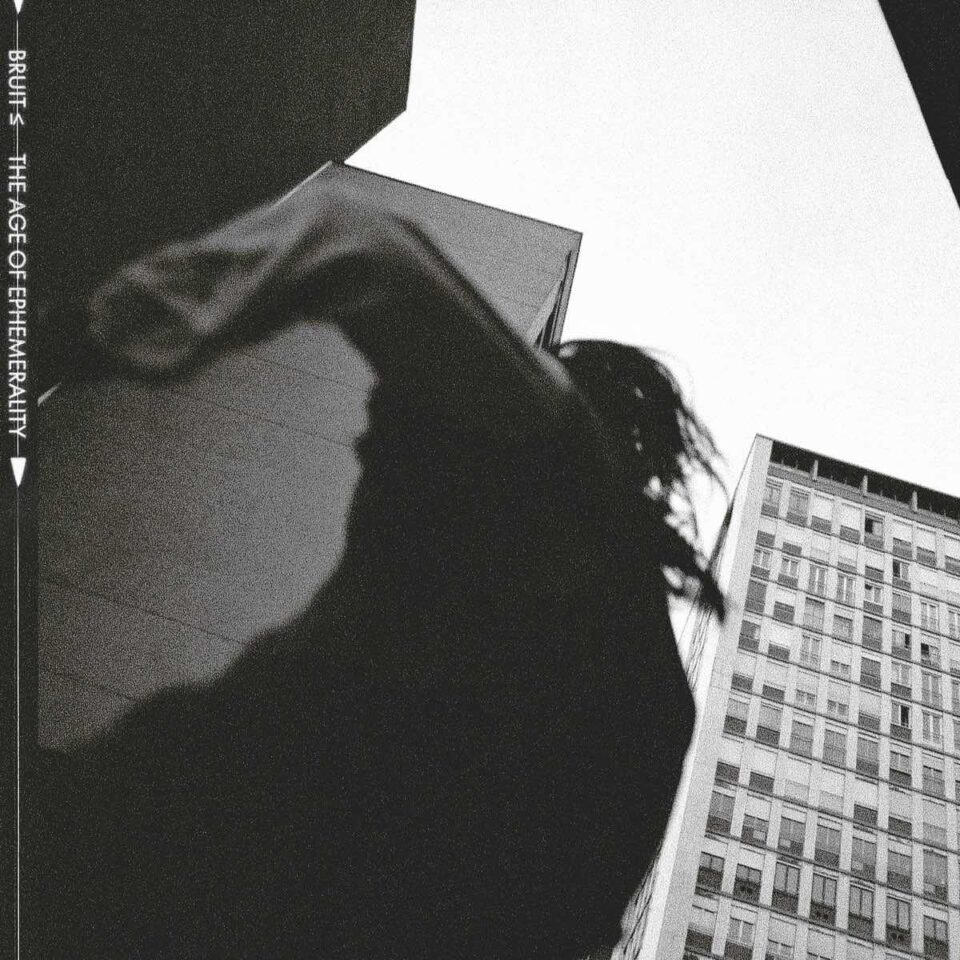Brothers Ron and Russell Mael—collectively known as Sparks—have eschewed convention for more than fifty years. “I Predict” may have been the name of their first charting U.S. single, but their career trajectory has never been easy to forecast.
Not that the stellar quality of the duo’s twenty-fourth studio album, A Steady Drip, Drip, Drip (available digitally now, and in myriad physical configurations on July 3), comes as a surprise. Sparks’ eclectic catalog includes more bullseyes than misfires, and 2017’s Hippopotamus won kudos from fans and critics alike. Making superlative records is what the Mael brothers do best.
What’s new is the pending completion of two Sparks-related motion pictures: the feature-length musical Annette, and a documentary by Edgar Wright (Baby Driver, Shaun of the Dead). This isn’t Sparks’ first foray into cinema (they perform two songs in the 1977 disaster film Rollercoaster, and if you watch very closely you can spot the Maels in the audience during The Ronettes’ segment of 1966’s The Big T.N.T. Show) but definitely their biggest, and fulfills some long-held dreams for the brothers, who both studied film at UCLA.
But according to Ron, there was no grand plan to make 2020 the Year of Sparks. “The fact that it’s all coming together now is just happenstance,” he insists from his Los Angeles home. “When we’re working on albums we can control the situation. But other people determine the schedule when you’re working on film things.”
Annette in particular has undergone long gestation. Eight years ago, when the Maels started work on their tale of a stand-up comedian, his opera singer wife, and their extraordinary two-year-old daughter, it wasn’t conceived as a movie. “We were going to do it as the next Sparks album, and then perform the whole thing live.”
But while trying to bring a different project (2010’s The Seduction of Ingmar Bergman) to the big screen, they crossed paths at the Cannes Film Festival with director Leos Carax, who’d just used their song “How Are You Getting Home?” in his film Holy Motors. “When we got back to LA, we decided to send him Annette, even though we’d never really intended it to be a film. And he replied, ‘I love this!’”
“The fact that it’s all coming together now is just happenstance. When we’re working on albums we can control the situation. But other people determine the schedule when you’re working on film things.”
Annette may be a musical, but it’s hardly conventional. The characters don’t just burst into song periodically; according to Ron, they never stop singing. “It’s probably 95 percent sung. It isn’t operatic in the way it sounds, although [one] character is an opera singer, but it is operatic as far as a continuous flow to the music and the story and all of it being linked.”
Nor does leading man Adam Driver attempt to mimic the theatrical singing style of Russell Mael, even though the songs were conceived and composed with the Sparks vocalist in mind. “Adam did an amazing job,” says Ron. “He was open to it being more a naturalistic approach to the singing, and less like showtunes, less bombastic. Even though it’s not Russell singing, the style works well with Adam, to where [his performance] doesn’t sound 180 degrees from how Russell would do it. By the same token, it’s Adam Driver, who is an unbelievable actor, acting through these songs. It’s the best of everything, as far as we’re concerned.”
The two film projects even overlapped at one point, with the documentary following Sparks to Brussels while the musical was being shot. Alas, given the secrecy surrounding the plot and production of Annette, Carax was reluctant to provide behind-the-scenes peeks. “They came all that way, and then ended up shooting us against a curtain. We could’ve been in Los Angeles or London or anywhere else.”

Luckily, Wright wasn’t exactly hurting for material for his film, which surveys Sparks’ entire career, from the band’s 1967 inception to their ’70s ascent as pop stars in England, right up to festival dates in 2019. In fact, he may have too much: the current edit clocks in at three hours. “He wants to get it down to a two-hour film, because he does plan on having a theatrical version…but he feels that it really works as three hours.”
Neither Ron nor Russell have seen a cut yet, as plans to preview it with the director in a proper theater this summer were curtailed by the pandemic. Ron admits he’s amused by the idea that their movie might require an intermission, “but that’s a long [running] time for anyone…unless somebody is a real diehard.”
But even with judicious edits, surveying Sparks’ fifty-three-year career has a way of sprawling. The brothers’ recent hand-picked collection, Past Tense: The Best of Sparks, features fifty-eight songs. “We try not to look back too much, but to be able to do it in a way that maybe had some surprises was actually enjoyable.” Between previously unreleased gems like 1967’s “Computer Girl” and the Hippopotamus outtake “Check Out Time 11AM,” Past Tense also showcases their team-ups with Franz Ferdinand, Jane Wiedlin of The Go-Go’s, and arty French combo Les Rita Mitsouko.
How did a band as insular and singular as Sparks learn to play well with others? “We felt a connection, personally and musically, with all those people,” says Ron. “We’re on the same wavelength.” That includes Faith No More, who played on their 1997 album Plagiarism. But they’ve turned down far more opportunities to collaborate than they’ve accepted. “That’s fine for us because we really want to stay pure to what we’re doing.”
Staying pure also means no longer working with big name producers like Giorgio Moroder, Tony Visconti, and Todd Rundgren. “We’ve learned enough from all those people, in different areas, where we can work without a producer.” They also scrutinize their own songs and performances more closely these days. “We realize we can’t let things slide just because there isn’t a producer there saying ‘this doesn’t cut it.’”
“Adam [Driver] did an amazing job. He was open to it being more a naturalistic approach to the singing, and less like showtunes, less bombastic.”
Quality control certainly isn’t a problem on A Steady Drip, Drip, Drip, which features fourteen new songs. “Stravinsky’s Only Hit” marries symphonic pomp with synth-pop sass, plus a fantastic lyric that reimagines the exploits of the revolutionary Russian composer. Two new tunes (“I’m Toast,” “Self-Effacing”) find Sparks returning to one of their favorite topics, cataloging faults and failures. There’s even a delightful ditty about suburban yard maintenance (“Lawnmower”).
The album concludes with the dramatic “Please Don’t Fuck Up My World,” a complementary companion to their 1974 classic “Never Turn Your Back on Mother Earth.” This time, the duo’s rage and frustration simply couldn’t be expressed without dropping some F-bombs. “To be honest, we tried a whole series of alternatives: ‘screw up,’ ‘mess up.’ That would’ve been OK for a radio version, but [the song] needed that kind of punctuation to get the point across.”
With plans for extensive touring currently on hold, and the release of their two movies inching along, Ron says the brothers are waiting as patiently as they can…which isn’t very. “We always want things to be moving faster than how they’re moving. Maybe that’s not a good quality for a person in a general sense, but it helps to push us to be working hard on things all the time.” FL









